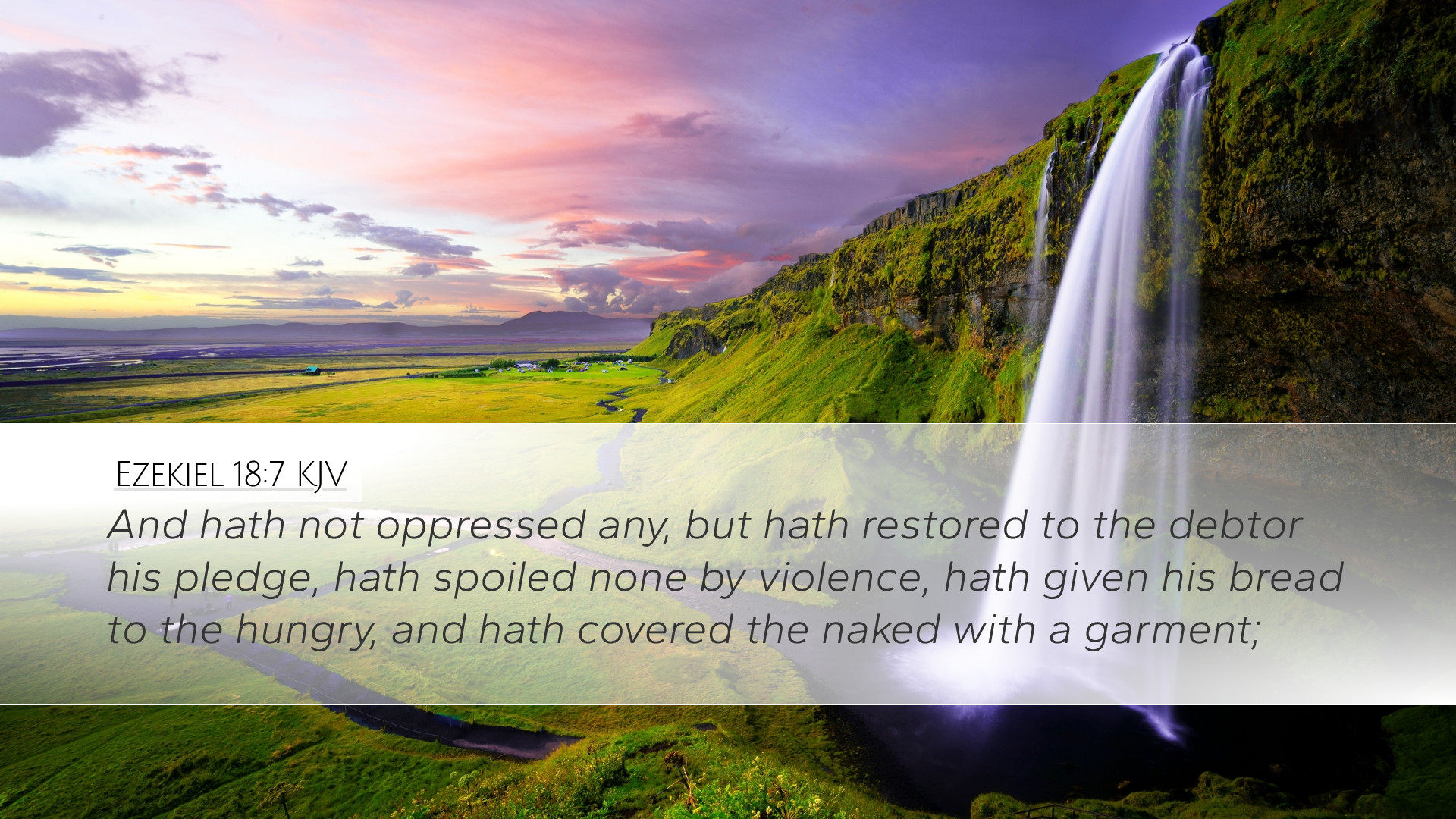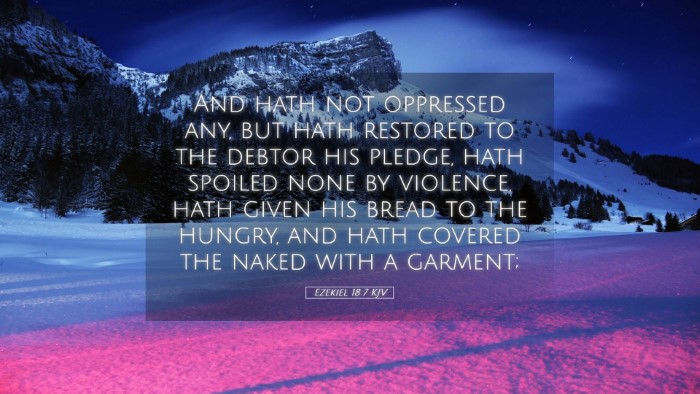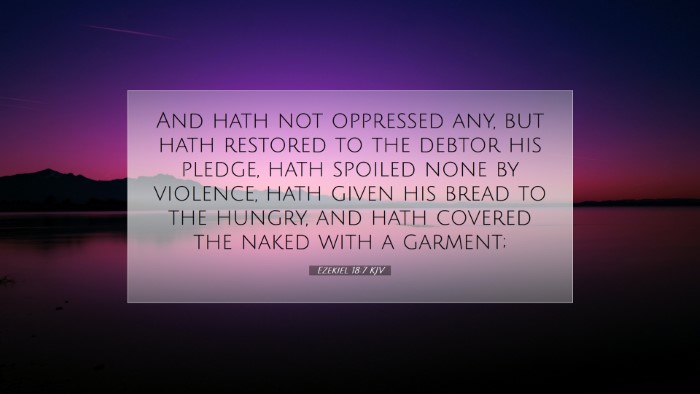Ezekiel 18:7 Commentary
Ezekiel 18:7: "And hath not oppressed any, but hath restored to the debtor his pledge, hath spoiled none by violence, hath given his bread to the hungry, and hath covered the naked with a garment;"
Introduction
The verse Ezekiel 18:7 carries profound implications regarding justice, righteousness, and balance within community relations. This text serves as a detailed reflection on the character traits and actions that define a righteous individual in the eyes of God. By examining insights from prominent public domain commentaries, we can unearth layers of meaning that appeal to pastors, students, theologians, and Bible scholars alike.
Contextual Background
This chapter of Ezekiel is focused on the theme of individual responsibility in matters of sin and righteousness. The previous verses set the stage for a discourse about personal accountability, which is a major theological pivot in the Post-Exilic period. The prophet Ezekiel, addressing the exiled Israelites, seeks to correct misconceptions about collective guilt and inherited sin.
Key Themes and Exegesis
1. Moral Integrity
Ezekiel 18:7 emphasizes several moral principles that reflect integrity:
- Restitution: The verse begins by asserting that the righteous person has not oppressed anyone, which can be understood as a commitment to restitution. Their integrity is shown through the restoration of a debtor's pledge, aligning with Levitical Law that called for fair treatment of others.
- Oppression and Justice: The prohibition against oppression is a significant theme throughout biblical texts. The commentaries of Matthew Henry emphasize that true righteousness involves an active stance against injustice and a commitment to safeguarding the rights of the vulnerable.
2. Compassionate Action
The latter part of this verse illustrates the compassionate actions of a righteous person:
- Charity and Generosity: By stating that the righteous gives his bread to the hungry and covers the naked with a garment, Ezekiel underscores the necessity of charitable acts as a manifestation of one’s faith. These acts are not merely optional but should be intrinsic to a believer's lifestyle.
- Insights from Albert Barnes: Barnes elaborates on how this compassion reflects God’s own character. Just as God cares for the needy and marginalized, so should His followers. This highlights a connection between divine righteousness and human actions.
3. Avoidance of Violence
There is a strong condemnation of violent behaviors, which reflects the ethical and social teachings in the prophetic literature:
- Peacefulness: The righteous person abstains from spoiling others by violence. Adam Clarke points out that the avoidance of violence is a crucial commentary on living peacefully within a community. The absence of violence is tantamount to ensuring the community's well-being.
The Theological Implications
Among the most critical theological implications of Ezekiel 18:7 is the understanding of salvation and justice in the Old Testament context. This righteous individual is painted not just as one who avoids wrongdoing but as one who actively contributes to the community's welfare through positive actions.
1. Personal Accountability
The entire chapter signifies a rejection of the notion that individuals suffer for the sins of others. The righteous are rewarded for their own acts of justice and mercy. This notion is discussed extensively in Henry’s commentary, emphasizing that God’s assessment of us is based on our deeds, not on an inherited burden of sin.
2. Reflecting God’s Character
The righteous acts described are reflective of God's own nature. As a social and moral being, He desires His followers to mirror these characteristics in their daily lives. The call to practical righteousness should be understood not merely in a legalistic sense but within the framework of relationship and community-building.
Practical Applications
For pastors and theological students, this passage not only serves as a guideline for personal conduct but also for preaching and teaching in congregational settings:
- Promoting Justice: Church leaders are encouraged to promote justice initiatives within their communities, demonstrating how the church can be a platform for advocacy against oppression and violence.
- Community Engagement: The verse can serve as a foundation for discussions around social justice, urging congregants to actively engage in charitable acts as witnesses of their faith.
- Personal Reflection: Individuals reflecting on their lives can consider how closely their actions align with the character traits outlined in Ezekiel 18:7.
Conclusion
Ezekiel 18:7 not only articulates the attributes of a righteous life but also serves as a divine call to justice and mercy. Through an integrated approach to the text, drawing on the rich insights of public domain commentaries, it becomes clear that the implications of this verse extend far beyond mere morality; they point toward a lifestyle shaped by compassion, respect, and active engagement in the betterment of others' lives. Such understanding is crucial for all who aspire to embody the fullness of Christian doctrine in today's world.


